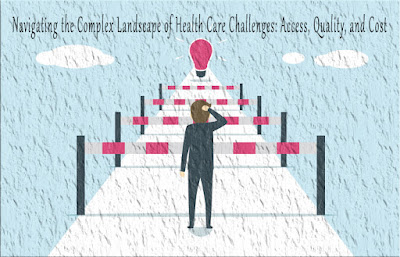In today's fast-paced world filled with health trends and fleeting solutions, the pursuit of lifelong health often appears elusive. However, achieving and preserving good health throughout one's life isn't merely about quick fixes or short-term changes; it entails cultivating sustainable habits and making informed decisions that support long-term well-being. This extensive guide delves into the fundamental principles and strategies crucial for maintaining vitality and health at every stage of life.
Understanding Lifelong Health
1. Holistic Approach to Well-being
- Health encompasses physical, mental, emotional, and social aspects.
- Adopting a holistic approach ensures a balanced and comprehensive approach to well-being.
2. Mindset and Attitude
- Foster a positive mindset towards health and wellness.
- Embrace challenges as opportunities for growth and personal development.
Establishing a Foundation: Healthy Habits for Every Stage
3. Nutrition
a. Balanced Diet
- Prioritize whole foods such as fruits, vegetables, lean proteins, and whole grains.
- Minimize processed foods high in sugars, salts, and unhealthy fats.
b. Portion Control
- Practice mindful eating to prevent overconsumption.
- Monitor portion sizes to maintain a healthy weight.
c. Hydration
- Ensure adequate water intake throughout the day.
- Limit sugary beverages and excessive caffeine.
4. Physical Activity
a. Regular Exercise
- Aim for at least 150 minutes of moderate-intensity exercise per week.
- Incorporate strength training to preserve muscle mass and bone density.
b. Daily Movement
- Stay active throughout the day, taking breaks from prolonged sitting.
- Engage in activities that bring joy and make exercise sustainable.
5. Sleep and Rest
a. Sleep Hygiene
- Establish a consistent sleep schedule.
- Create a conducive sleep environment for quality rest.
b. Stress Management
- Practice relaxation techniques like deep breathing and meditation.
- Prioritize stress-reducing activities to enhance overall well-being.
Preventive Care: Proactively Managing Your Health
6. Regular Health Check-ups
a. Annual Physical Exams
- Schedule routine check-ups with healthcare providers.
- Monitor key health indicators such as blood pressure, cholesterol levels, and BMI.
b. Screening Tests
- Stay current with recommended screenings for diseases like cancer and heart conditions.
- Early detection significantly improves treatment outcomes.
7. Vaccinations and Immunizations
a. Adherence to Vaccination Schedules
- Follow healthcare professionals' recommendations for vaccinations.
- Protect against preventable diseases for personal and community health.
8. Health Monitoring
a. Self-awareness
- Remain vigilant about bodily changes or unusual symptoms.
- Seek medical attention promptly when needed.
Mental and Emotional Well-being
9. Stress Management
a. Coping Mechanisms
- Develop healthy strategies to cope with stress effectively.
- Practice mindfulness and relaxation techniques for mental resilience.
10. Social Connections
a. Building Support Networks
- Cultivate meaningful relationships with friends, family, and community.
- Foster social connections to enhance emotional well-being.
Aging Gracefully: Adapting Health Strategies Over Time
11. Healthy Aging
a. Adjusting Habits
- Modify dietary and exercise habits to meet changing nutritional and physical needs.
- Prioritize activities promoting flexibility, balance, and strength for longevity.
12. Cognitive Health
a. Mental Stimulation
- Engage in activities that challenge cognitive abilities, such as puzzles or learning new skills.
- Maintain mental acuity to support brain health in later years.
Environmental and Behavioral Considerations
13. Environmental Health
a. Safety Measures
- Implement precautions to prevent accidents and injuries at home.
- Address environmental factors affecting health, such as air quality and exposure to toxins.
14. Healthy Lifestyle Choices
a. Avoiding Harmful Substances
- Limit alcohol intake and refrain from tobacco use.
- Make informed decisions regarding recreational drugs and medications.
Conclusion: Embracing a Lifelong Journey to Health
Achieving and sustaining lifelong health involves dedication, knowledge, and a commitment to continuous improvement. By embracing a holistic approach to health encompassing nutrition, physical activity, preventive care, and mental well-being, individuals can enhance their quality of life and enjoy greater vitality across all stages of life. Each positive choice made today contributes to a healthier and more fulfilling future tomorrow. Start making those choices now, and embark on your journey to lifelong health today.


No comments:
Post a Comment